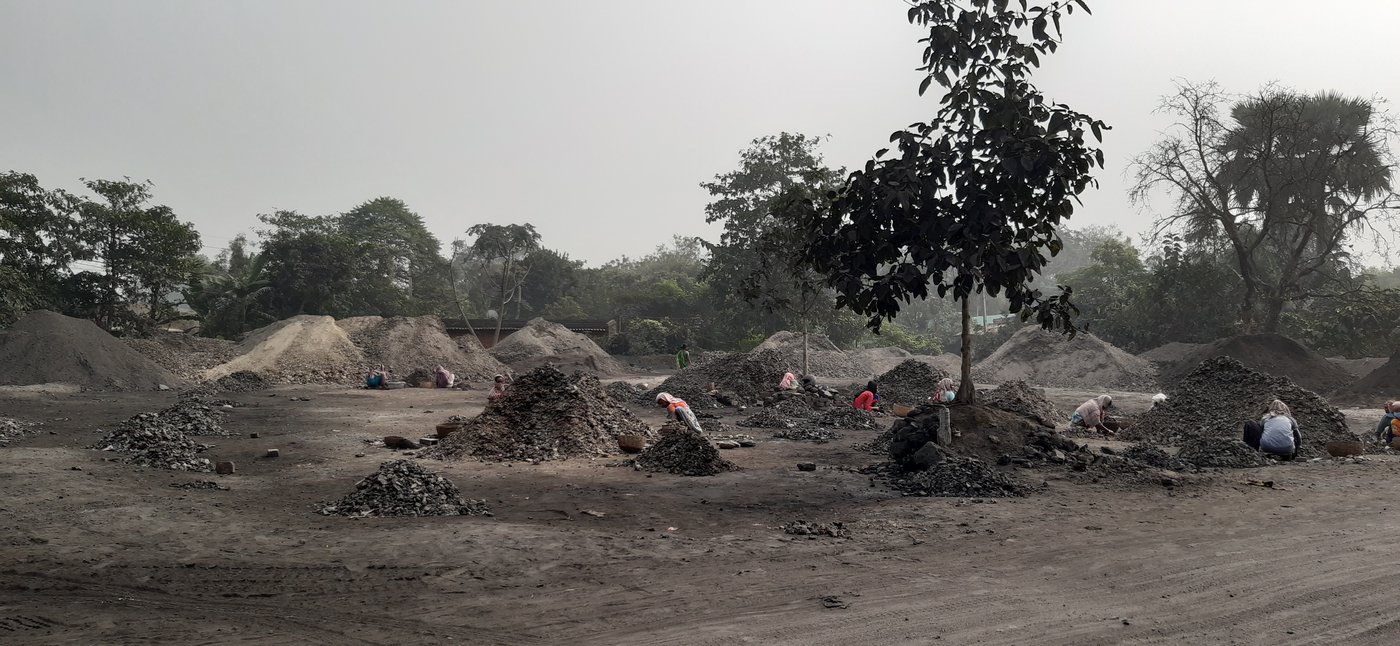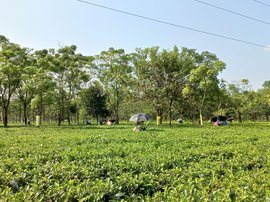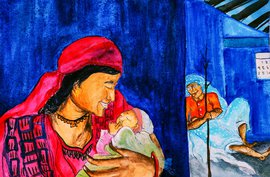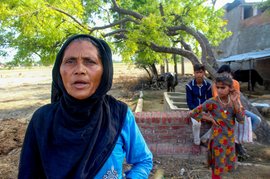“This is my first basket of the day. I [will] work all day long,” she says and turns away to start picking out the usable coal bits from the piles of ‘waste coal’ around her.
Only 12 years old, Priyanka Hembram is enrolled in the government-run Tamlabasti Adivasi Primary School, but her teacher says she rarely attends school. An orphan, Priyanka stays with her aunt who is a daily wage worker at the integrated steel plant in Durgapur in the Barddhaman district of West Bengal. Her earnings from scavenging coal pay for her upkeep at her aunt’s house.
Chepi Ray is in her late sixties and is one of the oldest labourers at the depots. “As a young woman, I could easily collect 10-12 baskets of coal each day. But now, I can’t work for long. My back hurts. My eyes hurt too,” she says.
In her late forties and one among the many women who do this strenuous and hazardous work, Momina Bibi says, “I worked during my pregnancy, as most women here do. There were times when I felt the urge to rest my aching body against something comfortable.” Her husband sometimes gets work loading coal at the depot, but she says they cannot depend on his income of around Rs. 200-300 a week. They have three daughters and a son, who are all in school and doing well, as Momina notes with pride. “If we had relied on my husband’s earnings none of my children would be in school. I am just waiting for my daughters to grow up, get a job and lead a decent life,” she adds.
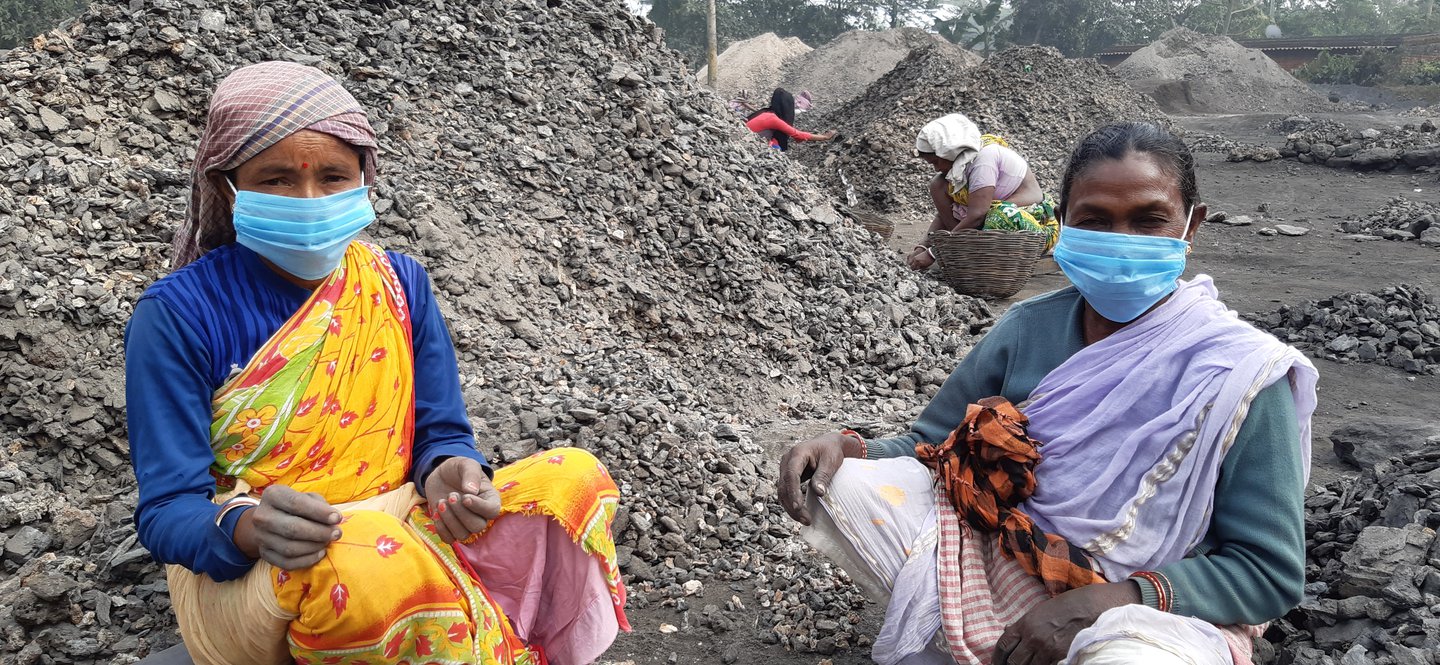
‘They sit crouched for hours on end, sifting the hard coal with their bare hands, covering their mouth and nose with the end of their saris or
dupattas
to keep the coal dust out‘.
Being underage, pregnant or in poor health is not a deterrent for scavenging coal from industrial waste around the Durgapur plant.
P. Sainath
’s article on the
koilawallahs
of Godda in neighbouring Bihar
Recycling energy, Godda style
notes that: ‘The scavenging of coal from the waste dumps [is] by very poor people…mostly women, [they are] largely responsible for what the official calls a “national saving”.
Young girls and women can earn upto Rs. 150 for around 10 hours of work. Each basket, weighing roughly 20 kilograms, will fetch them Rs. 25, and most manage to scavenge enough for five baskets.
The Durgapur Steel Plant is owned and operated by the public sector Steel Authority of India Limited (SAIL). Industries in and around the steel plant use raw coal that is sent directly from the mines. Waste coal or hard coke is the product that emerges after carbonising coking coal – this leftover hard coke is collected and dumped at koila depots along with other industrial waste including manganese, iron ore, sinter etc. These are then auctioned to different mahajans (owners) and sent to the respective depots.
“The
mahajans
seldom visit the depots and even when they do, they do not seem very concerned with hearing out our problems and grievances,” says Momina.
It is here that young girls and women, mostly belonging to the Santal Adivasi community, separate the used coals from the other industrial waste materials. They sit crouched for hours on end, sifting the hard coal with their bare hands, covering their mouth and nose with the end of their saris or
dupattas
to keep the coal dust out. With no toilets close by, they go 10 hours without a break.
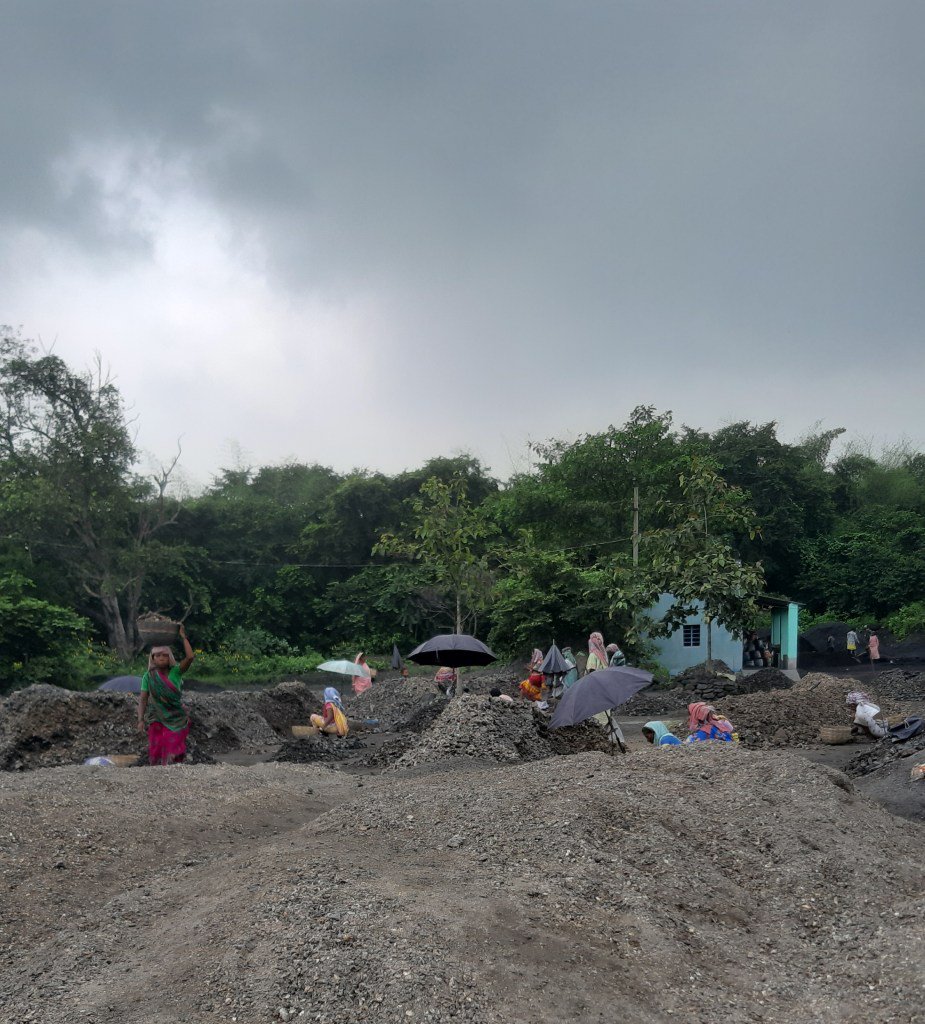
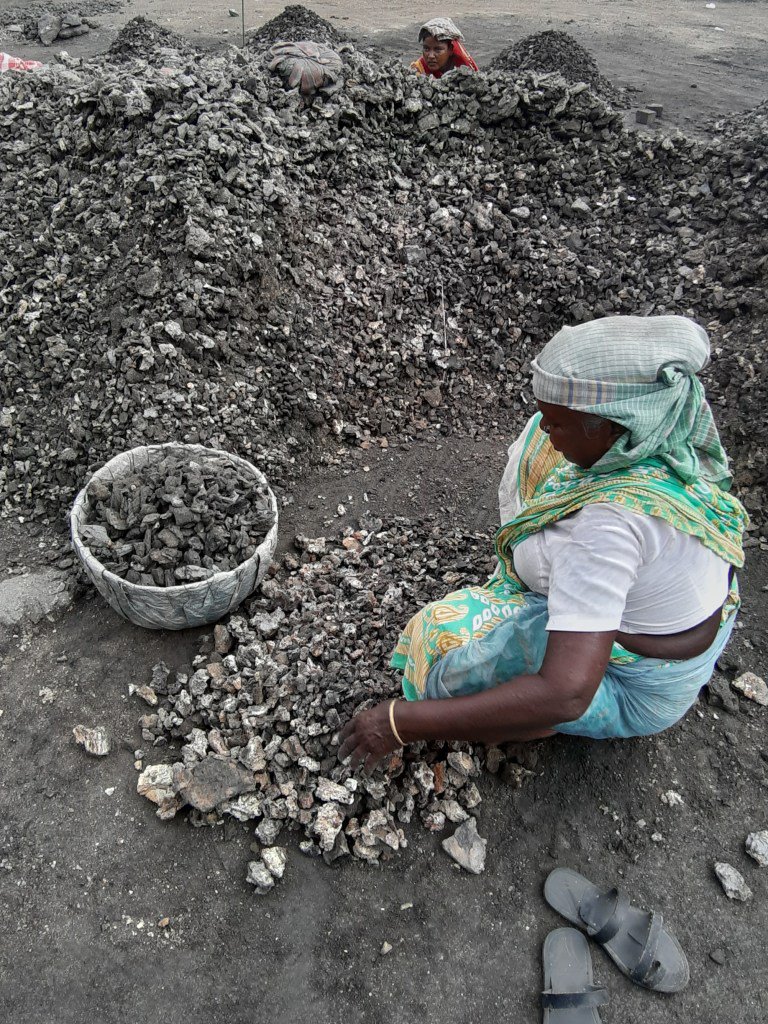
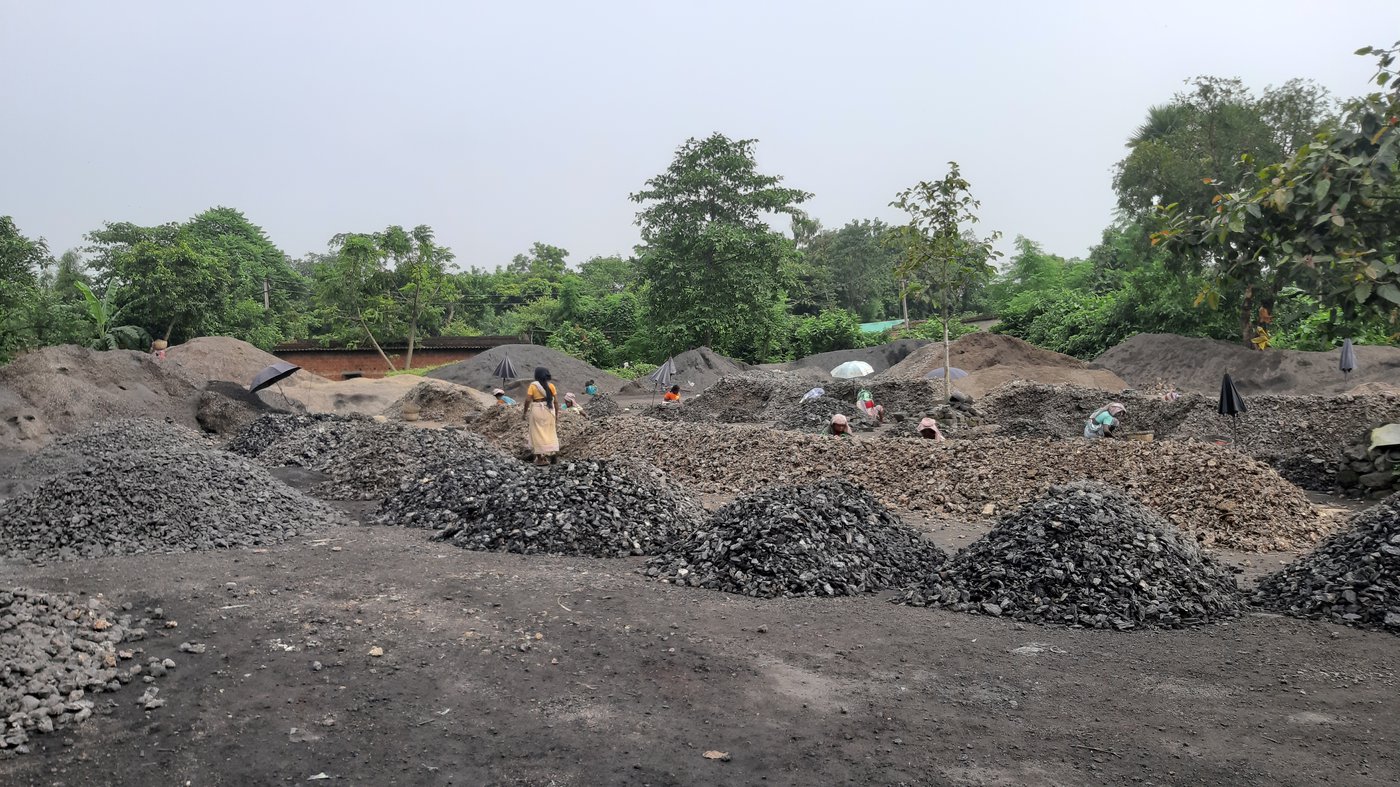
Anil Kumar Shaw, a supervisor at one of the depots, prefers to employ women as they don’t demand high prices for the coal, and he can be sure they will bring in saleable coal at the end of the day
The
mahajans
control areas which house several
koila
depots. Each depot is, in turn, looked after by supervisors who deal with the women labourers – engaging them, supervising and keeping track of their contribution and paying them accordingly.
“The coals that the women collect from the waste dumps are stacked on trucks and sent mainly to roadside dhabas , biscuit factories and sometimes sold to households that still use charcoal fire for cooking,” says Anil Kumar Shaw, a supervisor at one of the depots around Tamlabasti. Shaw says he prefers to employ women as they don’t demand high prices for the coal, and he can be sure they will bring in saleable coal at the end of the day. All the women interviewed in this story felt they were being taken advantage of, but they had little choice as there are no other jobs available.
Coal depots are located on the outskirts of the town in areas like Tamlabasti, named for the Tamla canal originating nearby. This area in the south-west of Durgapur is dotted with 6-7 feet-high mounds of waste coal. The people who work here live nearby in make-shift homes of mud and tarpaulin. Men get occasional employment, loading and unloading trucks.
Niyoti is a mother to four children – three sons and a daughter. “My daughter, unlike my sons, was good at her studies. I wanted her to pursue a higher education and get a decent job. But we couldn’t afford it. We got her married off at an early age,” she says. Her husband was once a permanent employee at the Durgapur Steel Plant. According to Niyoti, he would spend all his money on alcohol, returning home intoxicated almost everyday; he soon lost his job. Niyoti and her husband stay with their elder son – a day labourer at the steel plant – and his family.
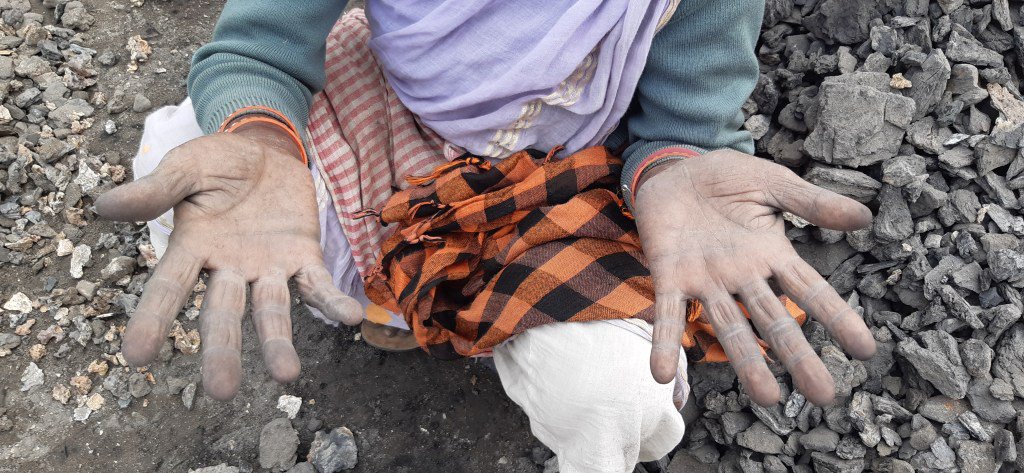
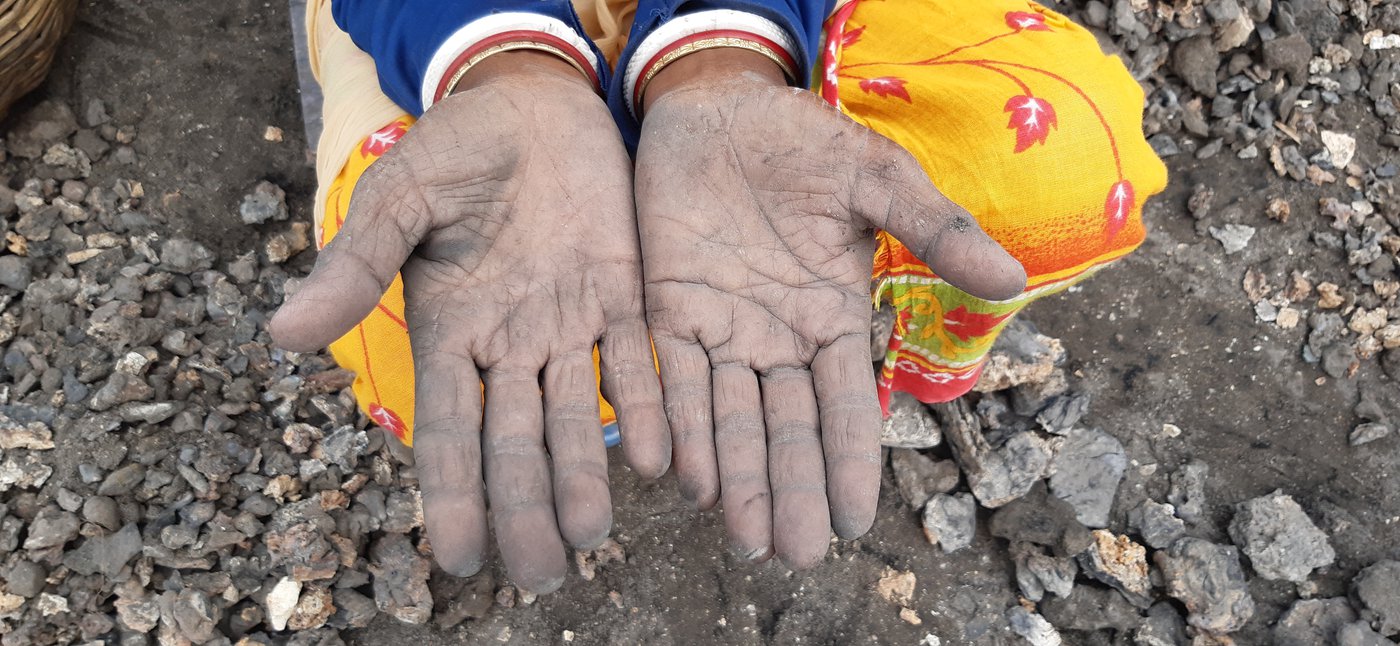
‘The mahajans seldom visit the depots and even when they do, they do not seem very concerned with hearing our grievances.’
Respiratory illnesses like tuberculosis, bronchitis and asthma are quite common, says Anita Ray, the ASHA worker at the Palashdiha Diagnostic Centre, which is the nearest health centre being roughly 2.5 kilometres from Tamlabasti. “Prolonged exposure to coal dust causes skin diseases among them. Children who accompany their mothers at the depots tend to suffer from dermatological ailments,” she says. Older women have gynaecological complications (due to unsanitary protection during their period of menstruation) and urinary tract infections from the long hours away from a toilet. Anita has managed to convince younger women who come to the health centre to switch to sanitary napkins.
Probodh Mallick is one such labourer. His wife, Tulika Mallick is sifting coals nearby. Probodh, 36, says this is the only work available and it’s not often that he gets it. “There are four members in my family: my wife, our young son and my mother. I earn 450 to 500 rupees a month,” he says. Tulika’s earnings of roughly Rs. 4,000 from sifting coal, funds the family’s expenses.
In her late 50s, Niyoti Bahadur has been working at the depots for almost four decades. “These depots were my only source of income back then [in the nineties],” she says. “I can no longer crouch and work at a stretch. So, I work sitting on a stool that I carry from home and I can only collect five baskets each day.”
The lockdown and closure of schools have put girls like Chobi Rani Murmu back in the depot, scavenging coal through the day. The 18-year-old passed her Class 12 exams in 2020 and was hoping to join a college in Durgapur and land a government job. Since she was five years old and through her school days, Chobi has been working at the depots, assisting her mother. “On weekends and weekdays after school I could assist my mother at the depots. Normally, I can collect 10 baskets of coal each day but it is very difficult to work in the heat of the summers without a shade over our head,” she says. Chobi and her mother try to fix large umbrellas in the ground to work under its shade, but it doesn’t offer much protection. When it rains the depots remain closed and the coal pickers lose their earnings for the day.
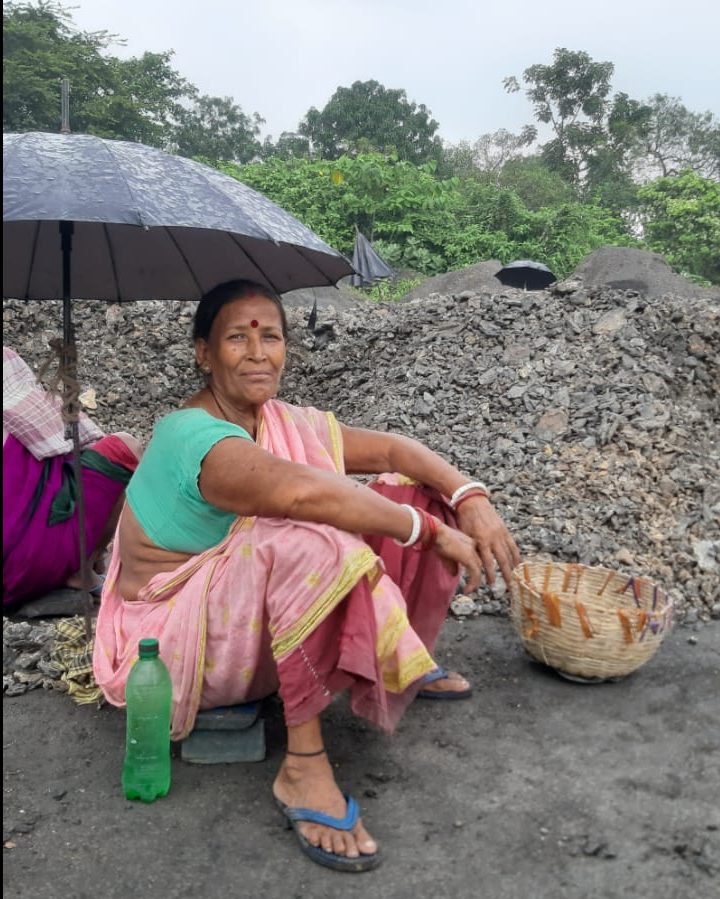
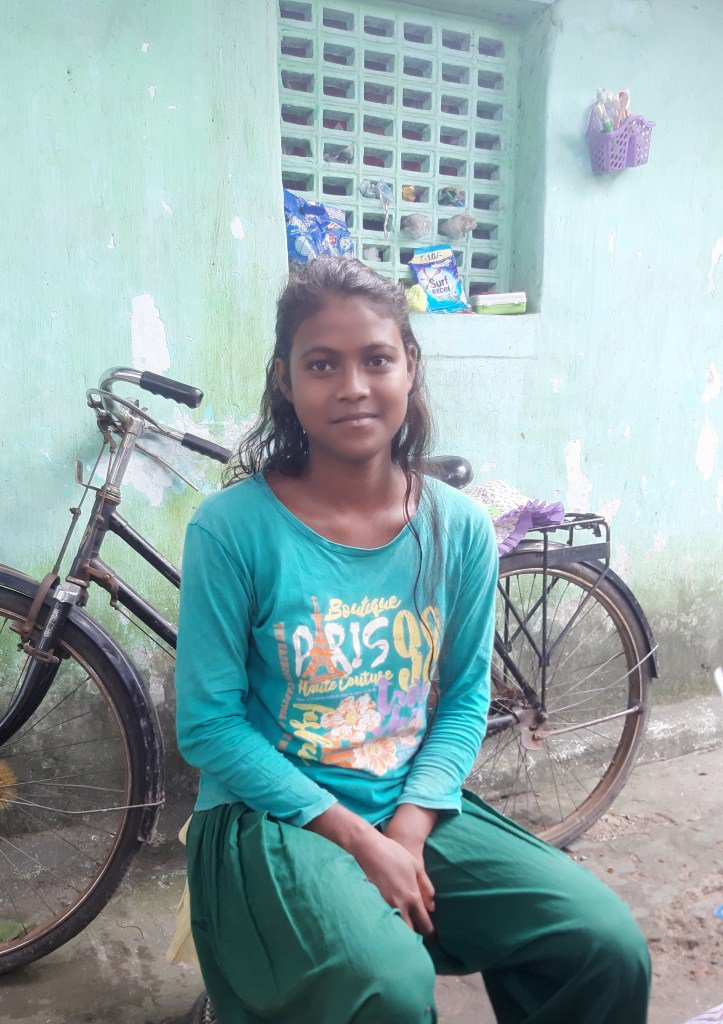
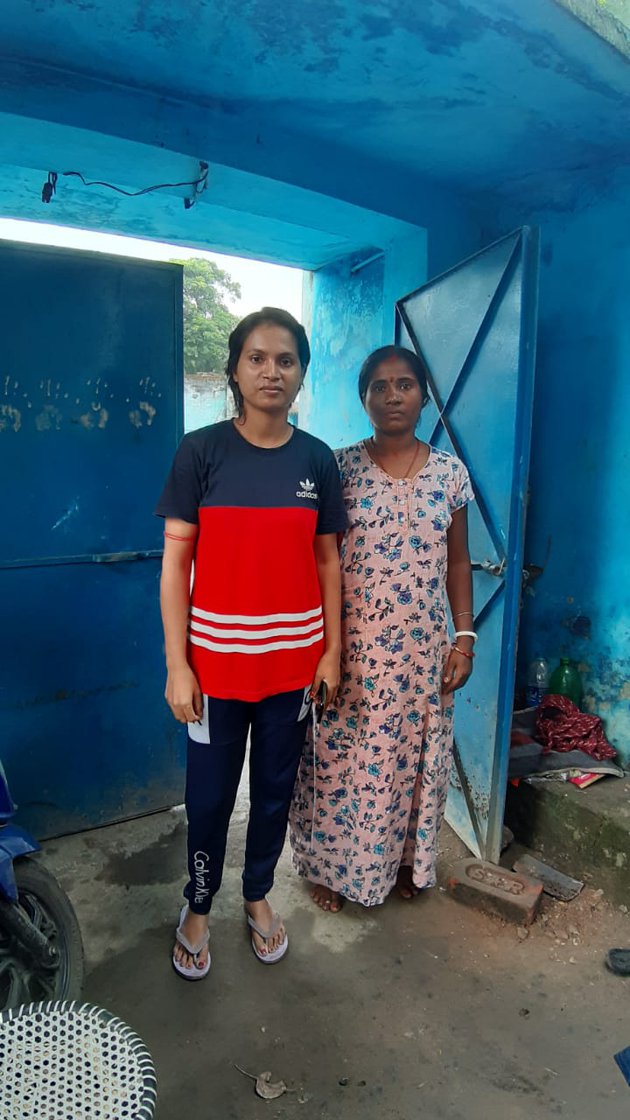
Left: Niyoti Bahadur has been working at the depots for almost four decades. Centre: Rima Majhi works on and off at the depot to pay for her travel to her college. ‘I want to complete my graduation and get into the military like Rekha didi,’ she says. Right: Rekha, the daughter of a coal picker (Kunti Rajbhar), is posted as a soldier in the paramilitary forces
With her college closed due to the lockdown, Sabita Saren, second-year undergraduate student of Sanskrit Literature at the Durgapur Women’s College, is back at the depot helping her mother. Her head covered with the
dupatta
of her salwar kameez to protect herself from the heat, she says, “A lot of physical labour goes into separating each chunk of coal from the pile of wastage that you see around. This work that women do is very hard.” Sabita’s mother, a regular at the depot, is keen that her daughter study so she does not let her miss a day of school.
Rima Majhi works on and off at the depot to help pay for her travel by bus and auto to college – Michael Madhusudan Memorial College, a distance of nine kilometres from Tamlabasti. Now with college closed, it’s funding her 4G connection. She lives with her elder sister and father who is a labourer at the Durgapur Steel Plant. A talented runner and athlete, she has won several sports prizes at the school level. “My elder sister is a labourer at the depots. She will get married next year, but I want to complete my graduation and get into the military like Rekha didi,” she told us, smiling.
Rekha is the daughter of Kunti Rajbhar, a coal picker. She is posted as a jawan (soldier) in the paramilitary forces of the Assam Rifles army contingent. Kunti beams when she talks of her daughter saying, “We wanted our children to achieve that which we never could in our entire life.”
Rekha is visiting her home and she told us, “now that I have a job, the financial condition of our family is better. Our mud house has recently become a pucca cement house. All this has been possible because of my mother’s efforts to ensure I receive an uninterrupted education.”
